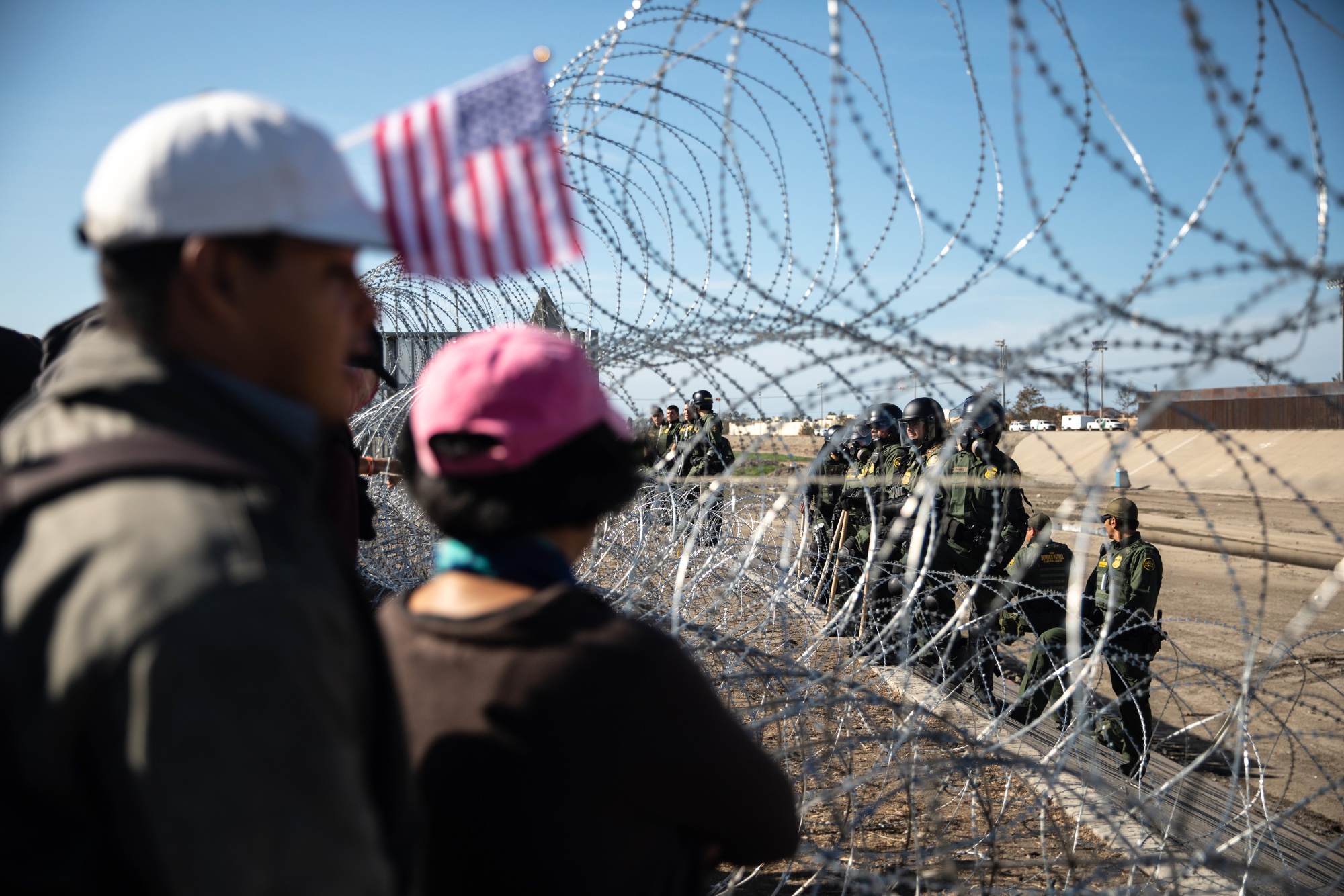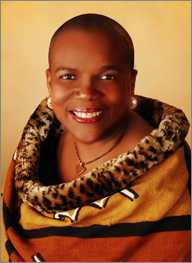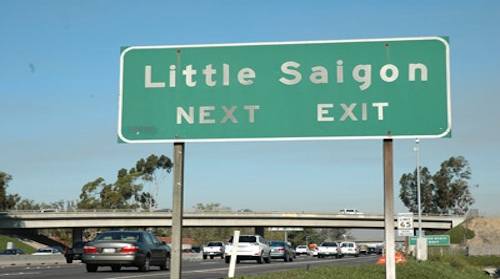Hate Escalates at the Border: Setting the Stage for 2024
The Ethnic Media Services (EMS) convened a briefing with the intriguing theme, “Hate Escalates at the Border: Setting the Stage for 2024.” The event focused on the concerning intensification of hate-driven incidents and actions targeting immigrants along the US-Mexico border, particularly in Texas. The goal of the briefing was to cast light on the prevailing situation, delve into a recently filed lawsuit concerning asylum rights for migrants, and delve into the potential ramifications for the upcoming 2024 presidential election.
Lead moderator Pillar Morrero, representing the Ethnic Media Services, inaugurated the session by drawing attention to the disturbing measures undertaken by Texan authorities at the border. Razor wire installations and disturbing accounts of border agents coercing fatigued asylum seekers back into the river have triggered mounting concerns regarding the heightened cruelty directed at migrants.
Key Discussion Points:
Border Scenario in Texas: The panelists embarked on a comprehensive exploration of the state of affairs along the Texas-Mexico border.
Manuel Ortiz Escámez, a sociologist, journalist, and documentary filmmaker from Ethnic Media Services and Peninsula 360 Press, shared his on-ground observations from Eagle Pass, Texas. He unveiled the utilization of contentious measures like razor wire and floating barriers, while also highlighting the tragic losses of migrant lives, including those of children, and the amplified dangers migrants encounter due to such actions.
New Legal Challenge and Asylum Rights: Gianna Borroto, Senior Litigation Attorney at the American Immigration Council, offered a deep dive into an innovative lawsuit challenging the curtailment of asylum-seeking possibilities for migrants. She deciphered the legal implications of these limitations and their ramifications on migrants’ access to refuge within the United States.
Implications for the 2024 Presidential Election: Cal Jillson, a distinguished Political Science Professor at Southern Methodist University and author of the forthcoming book “Race, Ethnicity, and American Decline,” probed into the nexus between the current border situation and its potential impact on the impending 2024 presidential election. He explored how the escalating rhetoric and actions targeting immigrants could play a pivotal role in shaping the discourse of political debates and subsequently sway voters’ decisions.
Highlights from Manuel Ortiz Escámez’s Observations:
Manuel Ortiz Escámez offered an immersive account of his experiences from Eagle Pass, Texas, painting a vivid picture of the dire state of affairs along the border. He revealed the deployment of military assets, including helicopters and military vehicles, underscoring an unsettling trend of increased militarization in the border region. The presentation featured images of the contentious floating barriers, accompanied by discussions on their potential implications in migrant fatalities. Manuel expounded on his encounters with a diverse group of migrants, including families and expectant women, who had braved grueling journeys across the border.
He spotlighted the prominence of Venezuelan migrants in the region, alongside individuals from Honduras and Mexico. The searing heat had compelled migrants to cross the border during the daytime, a perilous tactic driven by smugglers’ misleading information about decreased border patrol vigilance in elevated temperatures.
Manuel emphasized the harsh realities migrants confront, encompassing a lack of shelter and extreme temperature conditions. He underscored the unfolding humanitarian crisis at the border and touched upon allegations of local authorities benefiting from human trafficking activities. His insights expressed concern over the potential ramifications for human rights.
Gianna Borroto’s Insights on the CBP One App and Turnback Policy:
Gianna Borroto delved into the American Immigration Council’s response to the evolving asylum rules and policies under the Biden administration. Her discourse pivoted around the challenges emanating from the CBP One app and its implications for asylum seekers.
Gianna outlined the difficulties presented by the CBP One app:
- Limited Language Support: The app offers functionality in just three languages—English, Spanish, and Haitian Creole. This limitation proves obstructive for individuals who communicate in languages not accommodated by the app.
- Access to Technology: Successful use of the app mandates up-to-date smartphones equipped with functional cameras and reliable internet access. Unfortunately, many migrants lack access to such technology or dependable internet connectivity due to their circumstances.
- Technical Hurdles: The app is prone to glitches, freezes, error messages, and frequent stalls, impeding effective usage by asylum seekers.
- Tech Support Shortcomings: Inadequate technical support for the app often results in unanswered emails to the provided address.
- Limited Appointment Slots: The daily availability of just 1,450 CBP One appointments, determined by a lottery system, results in many asylum seekers being left without appointments despite multiple attempts.
- Impact on Asylum Seekers and the American Immigration Council’s Legal Challenge: Gianna underscored the dire consequences of the CBP One app and the turnback policy for asylum seekers. Many individuals are turned away from entry points if they lack CBP One appointments, thereby depriving them of access to the asylum process. This policy endangers the safety and well-being of asylum seekers, particularly those fleeing violence and persecution.
The American Immigration Council, in collaboration with partner organizations, has initiated a class-action lawsuit against the Biden administration’s policy of turning away asylum seekers without CBP One appointment. The lawsuit contends that this policy violates the rights of asylum seekers under both US and international law. Gianna emphasized that similar policies have been previously contested and declared unlawful, and this lawsuit seeks to safeguard the fundamental right of asylum seekers to seek protection. The litigation advocates for terminating the CBP One turnback policy and promoting an equitable and accessible asylum process devoid of discrimination stemming from technological barriers.
Cal Jillson, a distinguished Professor of Political Science at Southern Methodist University, brought a valuable political perspective to the complex issue at hand. In his contribution, he discussed the stance of Governor Abbott, a Republican, and the emergence of new anti-immigrant laws. He drew parallels with historical instances like the Antigone Laws in California and similar events in Arizona. While some of these laws were ultimately defeated, they often carried significant political motives.
Jillson delved into the intricate relationship between immigration policy, historical racial attitudes, and the contemporary political landscape. His insights were anchored in the theme of the session, “Hate Escalation: The Border Setting the Stage for 2024.” He elaborated on his academic focus, which explores how race, ethnicity, and immigration have intersected throughout American history.
He addressed the pivotal question of whether America has been a racist country historically, noting the deep-seated roots of white supremacy and the frequent mistreatment of immigrants. Jillson then provided a historical backdrop, tracing the origins of the current border situation. He underlined how the issue of immigration has been a constant presence in American history and policies since the nation’s inception. The complex sentiments surrounding immigration, particularly non-white immigration, have been a recurring facet of the American experience.
Jillson’s analysis extended to the shifting politics surrounding immigration. The current Republican position involves opposition to both illegal and perceived excessive legal immigration. This uncomplicated stance resonates with Republican voters due to its straightforwardness. In contrast, the Democratic approach is more intricate and appeals to a broader coalition.
The conversation also turned to the political dynamics in Texas, where Governor Abbott appeals to his conservative base to ward off competition from the right during Republican primaries. The impending 2024 presidential election was another focal point. Jillson anticipated that immigration and border issues may not wield as much influence as in previous years. This potential shift would likely favor Democrats, as messaging tied to immigration could potentially alienate some Republican voters, particularly in closely contested elections.
Jillson’s analysis illuminated the intricate interplay between historical contexts, immigration policies, and political strategies. His insights offered a glimpse into how these factors impact the current and future political landscape, uncovering the motivations behind diverse perspectives on immigration policy and its intersection with electoral dynamics.
In conclusion, the Ethnic Media Services’ briefing, titled “Hate Escalates at the Border: Setting the Stage for 2024,” provided a comprehensive and multidimensional exploration of the pressing issues surrounding the US-Mexico border. The event convened experts from various fields to shed light on the current state of affairs, discuss legal challenges, and analyze the intricate political landscape shaped by historical contexts. The briefing illuminated the profound complexities at play, from the alarming deployment of razor wire and floating barriers to the legal battles over asylum rights and the nuanced political strategies pursued by different parties.
Manuel Ortiz Escámez’s on-the-ground observations painted a vivid picture of the humanitarian crisis unfolding at the border, where migrants face dire conditions and perilous journeys. Gianna Borroto’s insights into the legal dimensions provided a crucial perspective on the challenges and barriers encountered by asylum seekers, emphasizing the need for a fair and accessible asylum process. Cal Jillson’s political analysis added yet another layer, unraveling the historical underpinnings of the immigration issue, the evolving political narratives, and the potential implications for the upcoming 2024 presidential election.
Collectively, the panelists demonstrated the multifaceted nature of the border situation and the range of perspectives required to address it comprehensively. The briefing emphasized the urgency of finding humane and effective solutions that uphold human rights while navigating the intricate interplay of policy, politics, and historical precedent. As the nation grapples with these challenges, the insights shared during the briefing serve as a critical starting point for fostering informed discussions, shaping policies, and ultimately working toward a more just and equitable approach to border and immigration issues.










